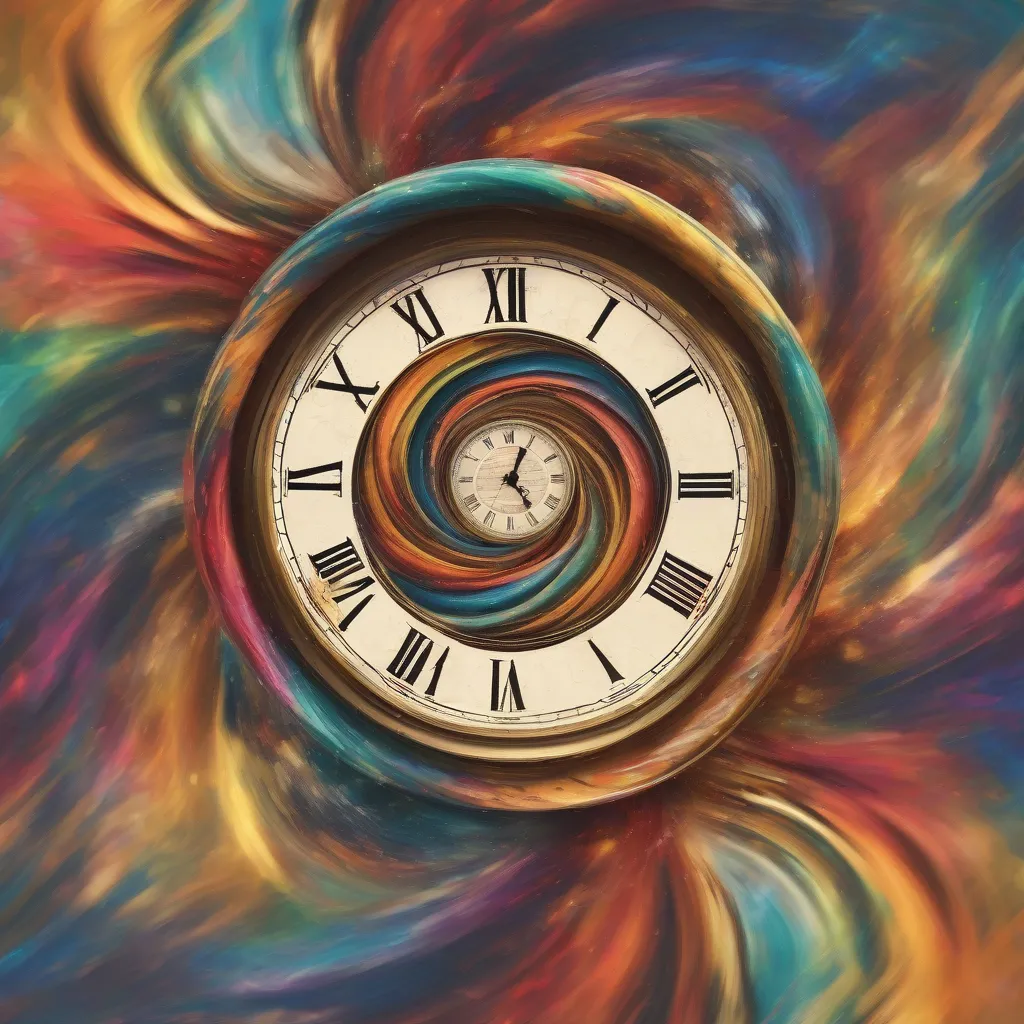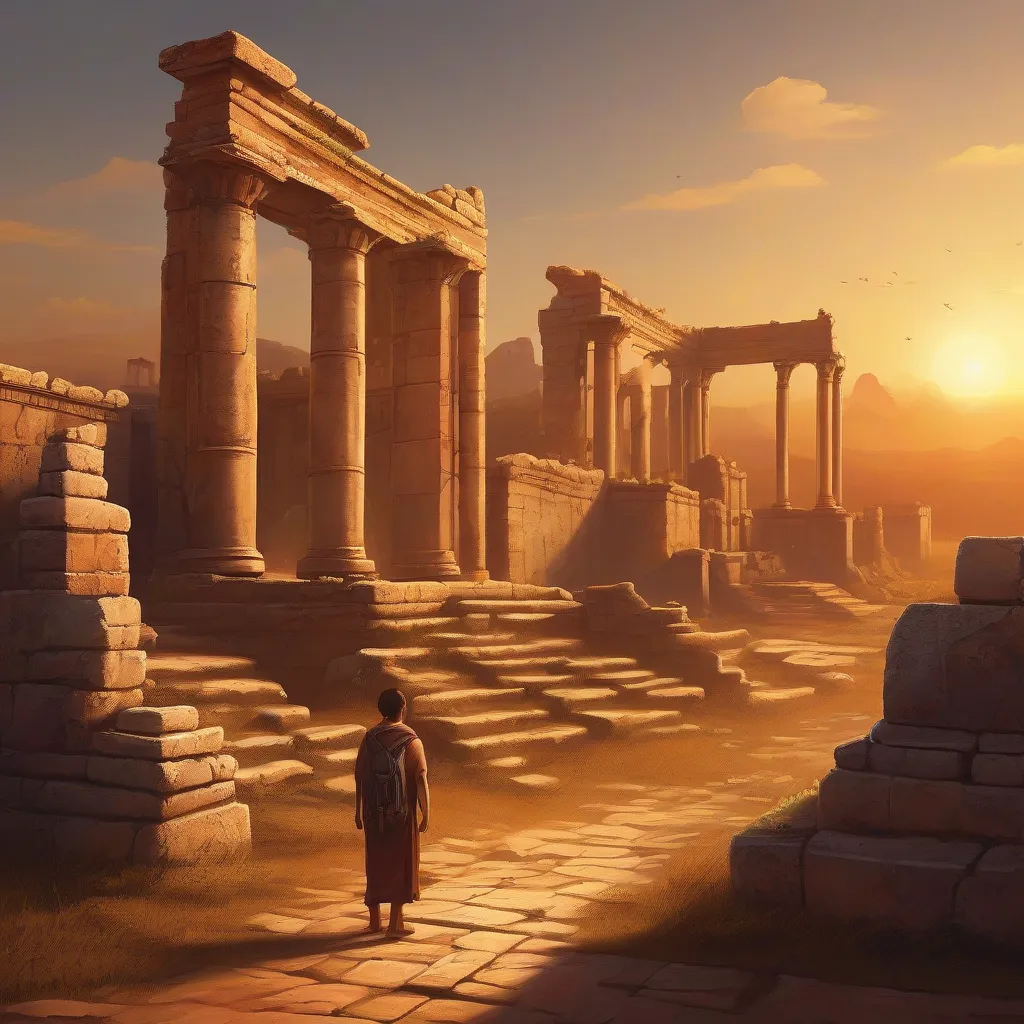“I’ve seen the future, boy! It’s a vast, swirling wonderland.” Imagine yourself whisked away on a whirlwind adventure through time, just like Marty McFly in Back to the Future. The concept of time travel has captivated humankind for centuries, weaving its way into our literature, films, and even scientific theories. But where did this fascination begin, and how has our understanding of time travel evolved? Let’s embark on a journey of our own, exploring the history of time travel from ancient myths to the cutting edge of modern physics.
Early Visions of Time Travel: Myths and Legends
Long before H.G. Wells penned his iconic novel, The Time Machine, our ancestors grappled with the concept of time through myths and legends. Ancient Hindu mythology, for instance, speaks of the Mahabharata, an epic poem where King Raivata travels to the heavens and returns to Earth to find that eons have passed. Similarly, Japanese folklore tells of Urashima Tarō, a fisherman who stumbles upon a magical underwater palace and, upon his return to his village, discovers that centuries have slipped away. These stories, though fantastical, highlight humanity’s enduring fascination with manipulating time’s passage.
H.G. Wells and the Birth of Modern Time Travel Fiction
The year 1895 marked a pivotal moment in the history of time travel with the publication of H.G. Wells’ “The Time Machine.” Wells’ novel, considered the first true work of science fiction to explore time travel as its central theme, introduced the concept of a machine capable of transporting an individual through the fourth dimension – time itself. This groundbreaking work laid the foundation for countless time travel narratives that followed, from the whimsical journeys of Doctor Who to the mind-bending paradoxes of the Terminator franchise.
Time Travel and the Fabric of Reality: Einstein’s Relativity
While fictional narratives fueled our imaginations, the 20th century saw groundbreaking scientific discoveries that further blurred the lines between fantasy and reality. Albert Einstein’s theory of relativity, particularly his concept of spacetime, provided a new framework for understanding time, not as a constant, but as a malleable dimension intertwined with space. This revelation opened up tantalizing possibilities, suggesting that time travel, at least in a theoretical sense, might not be entirely implausible.
Wormholes, Black Holes, and the Quest for Temporal Shortcuts
Today, physicists continue to grapple with the complexities of time travel, exploring theoretical concepts like wormholes – hypothetical tunnels connecting different points in spacetime – and the enigmatic nature of black holes, regions of extreme gravity where the very fabric of spacetime is warped. Could these cosmic phenomena hold the key to unlocking the secrets of time travel? While the answers remain elusive, the pursuit of understanding these cosmic mysteries continues to push the boundaries of human knowledge.
Planning Your Own Journey Through Time? A Few Considerations…
You might be asking, “Can I hop in a time machine and visit ancient Rome tomorrow?”. The reality is, practical time travel remains outside our grasp for now. However, you can still experience the thrill of stepping back in time! Visit historical landmarks, immerse yourself in different cultures, and let your imagination run wild. Travelcar.edu.vn offers a wealth of resources to inspire your next adventure. Consider exploring the ancient ruins of Machu Picchu, experiencing the vibrant culture of Marrakech’s Djemaa el-Fna square, or wandering through the cobblestone streets of Prague’s Old Town Square. These journeys, while grounded in the present, offer a tangible connection to the past, fueling our fascination with the passage of time and the allure of what once was.
FAQs: Time Travel’s Biggest Mysteries
Is time travel really possible?
While we haven’t cracked the code to building a DeLorean just yet, theoretical physics suggests that time travel might be possible under certain extreme conditions. However, the technology required is far beyond our current capabilities.
What are the potential paradoxes of time travel?
Time travel raises fascinating paradoxes like the grandfather paradox, which questions the possibility of altering the past in a way that contradicts your own existence. These paradoxes highlight the mind-bending complexities of time travel.
Where can I learn more about time travel?
Beyond the realm of science fiction, numerous resources delve into the science and philosophy of time travel. Check out works by Stephen Hawking, Michio Kaku, and Kip Thorne for fascinating insights.
 Time Travel Concept
Time Travel Concept
Embracing the Journey: The Enduring Allure of Time Travel
Whether a fantastical literary device or a tantalizing scientific possibility, time travel continues to capture our collective imagination. While the ability to physically journey through time remains elusive, exploring its history and the scientific principles surrounding it allows us to push the boundaries of our understanding of the universe and our place within it. So, keep dreaming of those temporal adventures, and who knows? Maybe one day, the line between science fiction and reality will blur even further.
 Exploring Ancient Ruins
Exploring Ancient Ruins
Don’t forget to share your thoughts and theories on time travel in the comments below! And for more travel inspiration, explore the captivating destinations and insightful articles on travelcar.edu.vn. Who knows, your next adventure might just transport you through time in its own unique way.